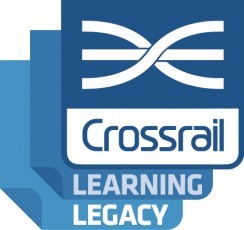Location:
PMKI > IT
& Construction Industries > Construction
& Engineering Case Studies.


- Construction risk management case
studies
- The Elizabeth Line
and Crossrail
- Construction time management case
studies
- Useful External Web-links &
Resources.
Other related sections of the PMKI:
- Construction management
- Project controls and scheduling
- Risk Management
PP: Construction - A
Risky Business. This 2005 paper identifies
some of the factors creating risk in the Australian
construction industry and suggests ways to better align
risk and reward. We hypothesize, that the efficient
management of risk involves both contractors and clients
working together to deliver the right project for the
right price, utilizing modern forms of contract such as
'Collaborative Working Agreements', unfortunately the
challenges identified are still relevant in the current
market.
- Download
the PowerPoint presentation.
PP: Risk Attitudes in the Construction Industry - Avoidance Does Not Work. Most client organizations are excessively risk averse, and in their attempts to avoid ‘all risk’ expose themselves to more adverse outcomes than if they actively embraced and managed risk.
Prs : Governing for success, Crossrail - PPT - Construction CPM 2019. This presentation applies the principles outlined above to the London Crossrail debacle as at 2019. The eventual full opening of Crossrail (renamed to the Elizabeth Line) was delayed to 2022.
Prs: Who's Cross about Crossrail? The insidious effect of Technical Debt - A review of the £2billion cost blow out and 2 year delay in the London Crossrail project as seen in 2019, caused by a combination of technical debt and poor governance. The final outcome was a delay of 4 years to full opening and a £2billion cost blow out.
Blg: London’s Elizabeth Line Now Open (sort-of) This post looks at the partial opening of the last major stage of Crossrail and the launch of the Elizabeth Line in May 2022. Final completion and full operation of the Elizabeth line is not expected for another year. Mark Wilde CEO of Crossrail shared the lessons he learned from being in charge of the massive project in early June, his insights make fascinating reading: Read the article.
Blg: Measuring Project Success This post looks at the wider question of measuring project success in the context of the Elizabeth Line recording more than 100 million journeys in its first year of partial operation, with around 600,000 journeys being made every day as the line approaches its final operational upgrade on 21st May 2023.
Blg: Ethics and sustainability. Building ethics and sustainability into a project does not limit its success; in fact the reverse is often true. The disposal of millions of tones of excavated material from the Crossrail project has created a wildlife haven.
 Crossrail Learning Legacy - The Crossrail project
finished in May 2023 with the introduction of full
services on the core section. The LEarning Legacy remains
for the collation and dissemination of good practice,
lessons learned and innovation from the Crossrail
construction programme: https://learninglegacy.crossrail.co.uk/
Crossrail Learning Legacy - The Crossrail project
finished in May 2023 with the introduction of full
services on the core section. The LEarning Legacy remains
for the collation and dissemination of good practice,
lessons learned and innovation from the Crossrail
construction programme: https://learninglegacy.crossrail.co.uk/
PP: (The) Effective Management of Time on Mega Projects. The construction industry’s ability to effectively manage time appears to be getting worse. Research by the CIOB undertaken in 2007 found most complex/mega projects failed to adequately mange time, most finished late, and the situation was getting worse over time. If the Burj Khalifa in Dubai had been built at the same speed as the Empire State Building (completed in 1931) it would have opened two years earlier! In response to this challenge, the CIOB assembled an international team of international project planning and scheduling experts (including the author) to develop a Guide to Good Practice in the Management of Time in Complex Projects (The Guide). This paper will identify the key elements within the Guide that proactively contribute to the successful delivery of mega projects, relate these ideas to practical examples of their use on mega-projects and offer a way forward to improve time management.
Interestingly, the degree of failure seems to be the same regardless of the size of the penalties imposed for late completion and regardless of the form of contract used. PPP, Alliance, Partnering, D&C, and traditional forms of contract all experienced similar trends and similar levels of failure. What the CIOB research did uncover was the significant difference in performance between simple and complex projects and on complex projects, between those using effective time management compared to those that did not. The research found:
In response to this challenge to implement a three-phase strategy to provide the required standards of performance in effective time control. Phase 1 focused on the education and training of project schedulers; and the development of a The Guide. Phase 2 focused on the promotion of amendments to standard forms of contract to facilitate effective time management (see below). Followed by Phase 3, which focued on the education and training of project planners. The Guide has introduced a range of practical ideas to enhance the effective management of time in mega-projects which will be the focus of this paper:
These concepts are built into our schedule training, including our Easy CPM Course-in-a-book.
The Chartered Institute of Building (CIOB). the world's largest and most influential professional body for construction management and leadership: https://www.ciob.org/about
Constructing Excellence - CE (UK) aims to achieve a step change in construction productivity by tackling the market failures and promoting continuous improvement: http://www.constructingexcellence.org.uk
IACCM - The International Association for Contract & Commercial Management world-class standards in contracting and relationship management process and skills: https://www.iaccm.com Publishes the IACCM Capability Maturity Model to benchmark contracting processes: https://www.iaccm.com/services/contracting-capability-maturity-assessment/
ICPMA - The International Construction Project Management Association (ICPMA) is an international umbrella association focusing on international Knowledge Management, the General Annual Meeting, working groups and publications: http://www.icpma.net
Major Projects Knowledge Hub (UK). Brings together learning, innovation and good practice from many different sources such as learning legacies by major projects, other related knowledge hubs and websites: https://www.majorprojectsknowledgehub.net
Strategic Forum for Construction (SFfC) UK. SFfC brings together the organisations representing the UK construction sector to work collaboratively for a better industry: http://www.strategicforum.org.uk/